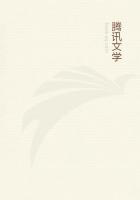I fear that, either by natural gift or by acquired habit, you already possess the imperturbable temper which will be so useful to you if you do join the army of spies and eavesdroppers. If I am right, you have made up your mind to refuse to take offence, as long as by not taking offence you can wriggle yourself forward in the band of journalistic reptiles. You will be revenged on me, in that case, some day; you will lie in wait for me with a dirty bludgeon, and steal on me out of a sewer. If you do, permit me to assure you that I don't care. But if you are already in a rage, if you are about tearing up this epistle, and are starting to assault me personally, or at least to answer me furiously, then there is every hope for you and for your future. I therefore venture to state my reasons for supposing that you are inclined to begin a course which your father, if he were alive, would deplore, as all honourable men in their hearts must deplore it. When you were at the University (let me congratulate you on your degree) you edited, or helped to edit, The Bull-dog. It was not a very brilliant nor a very witty, but it was an extremely "racy" periodical. It spoke of all men and dons by their nicknames. It was full of second-hand slang. It contained many personal anecdotes, to the detriment of many people.
It printed garbled and spiteful versions of private conversations on private affairs. It did not even spare to make comments on ladies, and on the details of domestic life in the town and in the University. The copies which you sent me I glanced at with extreme disgust.
In my time, more than a score of years ago, a similar periodical, but a much more clever periodical, was put forth by members of the University. It contained a novel which, even now, would be worth several ill-gotten guineas to the makers of the chronique scandaleuse. But nobody bought it, and it died an early death.
Times have altered, I am a fogey; but the ideas of honour and decency which fogies hold now were held by young men in the sixties of our century. I know very well that these ideas are obsolete. Iam not preaching to the world, nor hoping to convert society, but to YOU, and purely in your own private, spiritual interest. If you enter on this path of tattle, mendacity, and malice, and if, with your cleverness and light hand, you are successful, society will not turn its back on you. You will be feared in many quarters, and welcomed in others. Of your paragraphs people will say that "it is a shame, of course, but it is very amusing." There are so many shames in the world, shames not at all amusing, that you may see no harm in adding to the number. "If I don't do it," you may argue, "some one else will." Undoubtedly; but WHY SHOULD YOU DO IT?
You are not a starving scribbler; if you determine to write, you can write well, though not so easily, on many topics. You have not that last sad excuse of hunger, which drives poor women to the streets, and makes unhappy men act as public blabs and spies. If YOU take to this metier, it must be because you like it, which means that you enjoy being a listener to and reporter of talk that was never meant for any ears except those in which it was uttered. It means that the hospitable board is not sacred for YOU; it means that, with you, friendship, honour, all that makes human life better than a low smoking-room, are only valuable for what their betrayal will bring.
It means that not even the welfare of your country will prevent you from running to the Press with any secret which you may have been entrusted with, or which you may have surprised. It means, this peculiar kind of profession, that all things open and excellent, and conspicuous to all men, are with you of no account. Art, literature, politics, are to cease to interest you. You are to scheme to surprise gossip about the private lives, dress, and talk of artists, men of letters, politicians. Your professional work will sink below the level of servants' gossip in a public-house parlour. If you happen to meet a man of known name, you will watch him, will listen to him, will try to sneak into his confidence, and you will blab, for money, about him, and your blab will inevitably be mendacious. In short, like the most pitiable outcasts of womankind, and, without their excuse, you will live by selling your honour. You will not suffer much, nor suffer long. Your conscience will very speedily be seared with a red-hot iron. You will be on the road which leads from mere dishonour to crime; and you may find yourself actually practising chantage, and extorting money as the price of your silence. This is the lowest deep: the vast majority, even of social mouchards, do not sink so low as this.
The profession of the critic, even in honourable and open criticism, is beset with dangers. It is often hard to avoid saying an unkind thing, a cruel thing, which is smart, and which may even be deserved. Who can say that he has escaped this temptation, and what man of heart can think of his own fall without a sense of shame?
There are, I admit, authors so antipathetic to me, that I cannot trust myself to review them. Would that I had never reviewed them!

